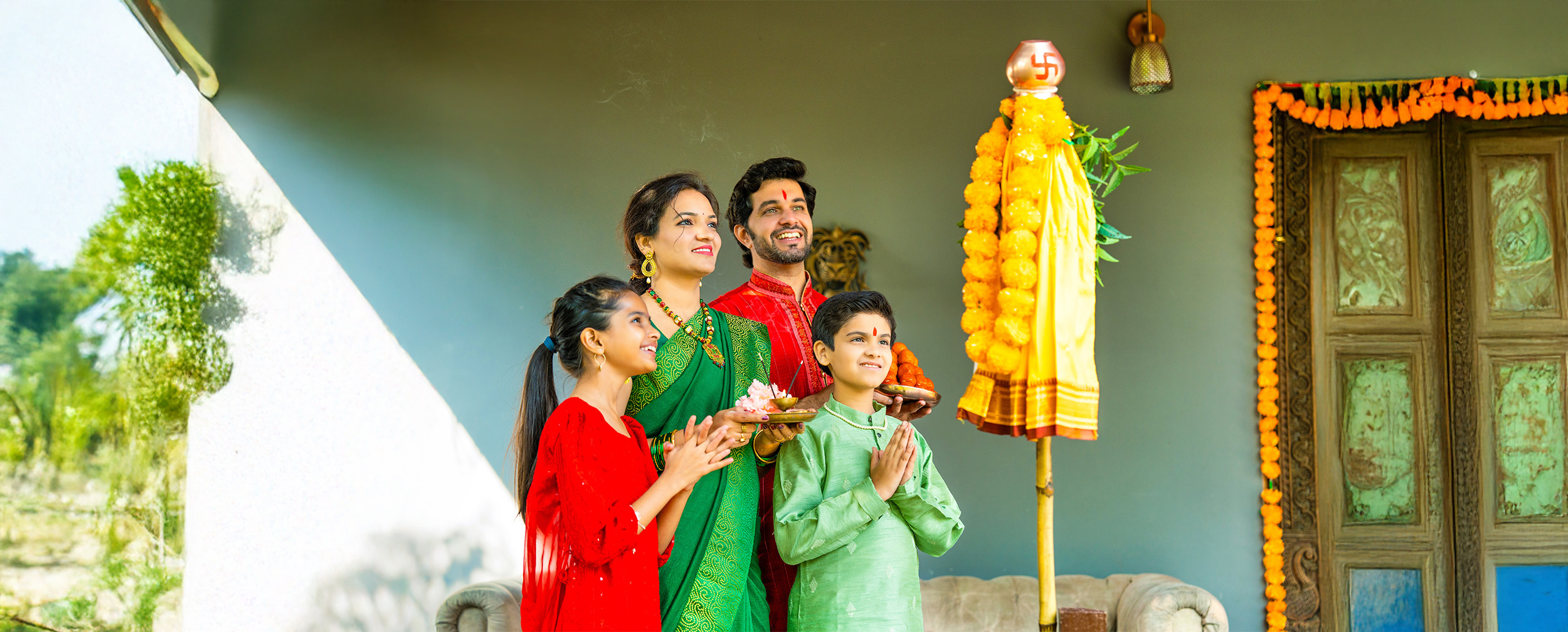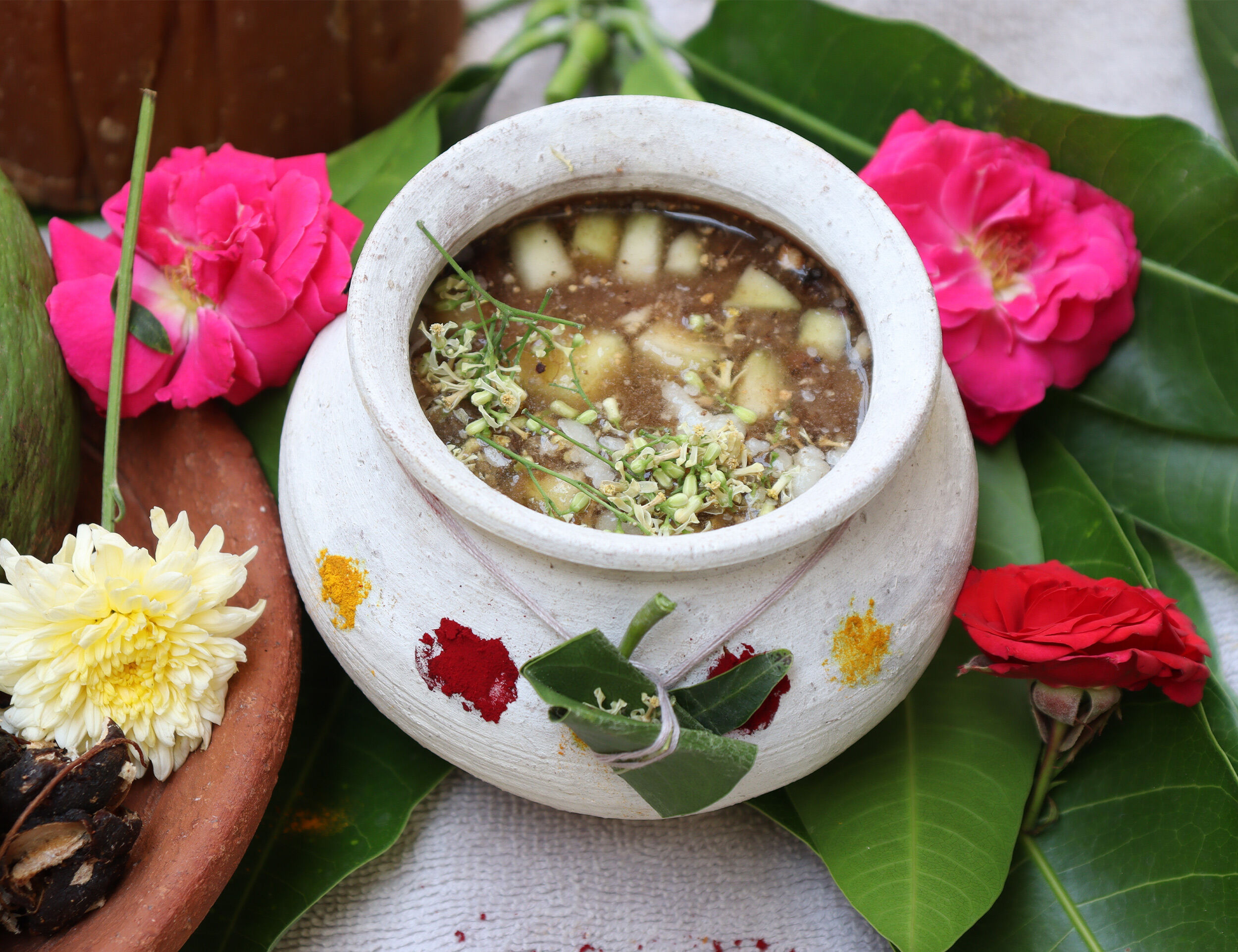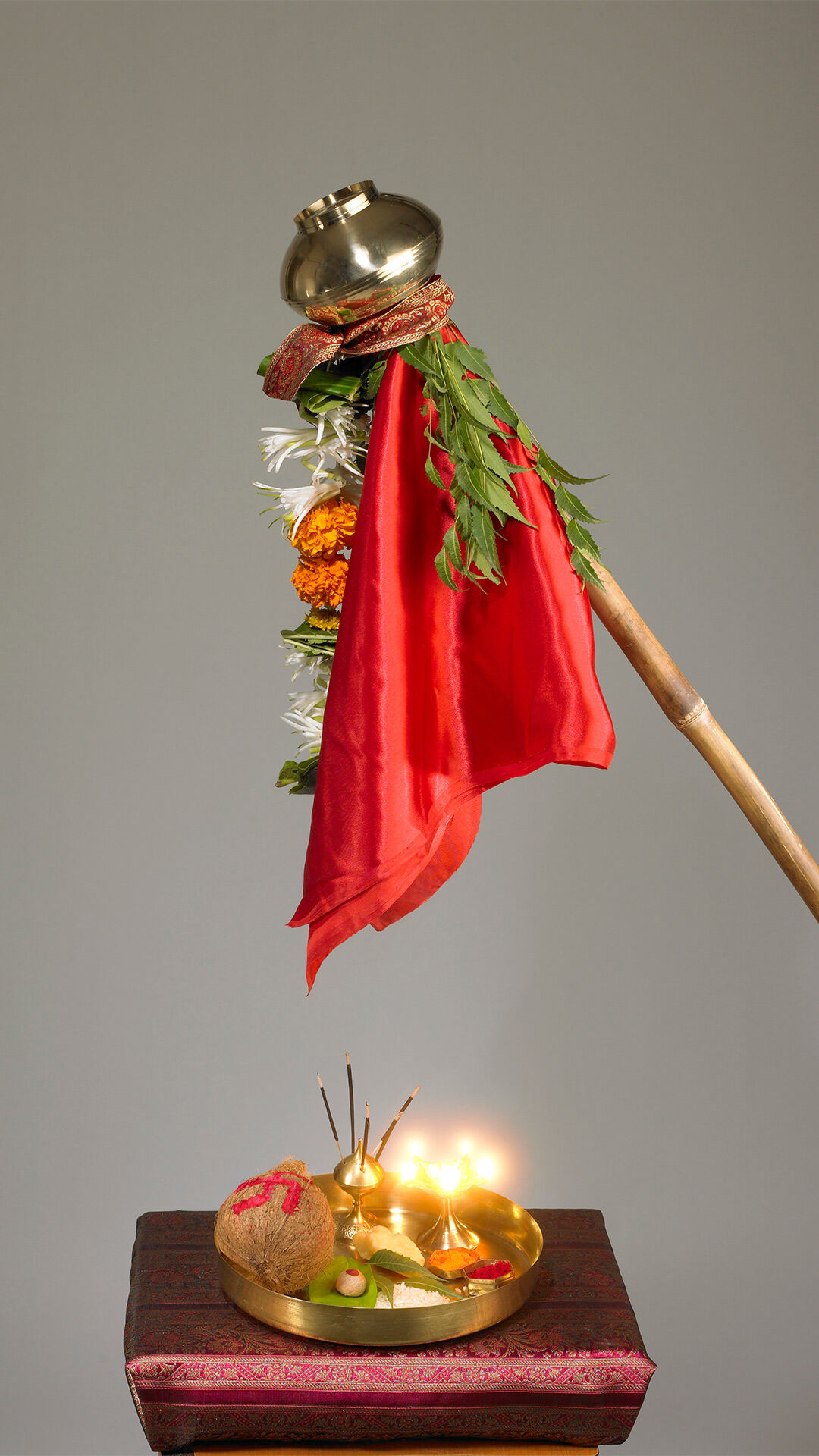STORIES BY DIWAS

Lifestyle
Why Gudi Padwa is Celebrated: The Deep-Rooted Traditions and Spiritual Meaning
Date 28 March 2025 Reading time: 7-10 mins
Imagine a crisp spring morning, the air thick with anticipation and festive cheer. Colourful gudis sway gently outside homes, heralding the dawn of a New Year. The aroma of puran poli wafts through the streets as families gather to welcome new beginnings.
This is the magic of the Gudi Padwa festival, a cherished tradition that marks the first day of the Hindu lunisolar calendar across Maharashtra and beyond. But what's the story behind this vibrant celebration? Let's dive deep into the history, significance and traditions that make Gudi Padwa truly special.
The History of Gudi Padwa Festival
Why Gudi Padwa is celebrated? Gudi Padwa's roots can be traced back to ancient scriptures and legends. According to the Brahma Purana, this day marks the beginning of the universe itself, when Lord Brahma created time and set the cosmic cycle in motion. The festival also commemorates the coronation of the legendary King Shalivahana, who triumphed over invading forces and ushered in an era of peace and prosperity.
The importance of Gudi Padwa extends beyond these significant historical events; it is a celebration of new beginnings, spiritual growth, and the promise of prosperity. This festival reminds us to embrace positivity, reflect on the past, and welcome a fresh start with open arms. It also holds a special place in the hearts of people as a day to renew faith, celebrate triumphs, and seek blessings for the year ahead.
Why Gudi Padwa is Celebrated: The Story Behind the Celebration of Gudi Padwa Festival
Beyond its historical and mythological significance, Gudi Padwa is deeply intertwined with the arrival of spring and the agricultural cycle. For farmers across Maharashtra, this day signifies the end of the harvest season and the beginning of a new sowing period. The raising of the gudi symbolises the victory of good over evil and the triumph of light over darkness. The importance of Gudi Padwa is reflected in its connection to nature's renewal and the hopes of prosperity for the coming year. This connection to agriculture and seasonal cycles makes the festival a time to celebrate growth, renewal, and harmony with the Earth.
To understand the true essence of the festival, one must look at the history of Gudi Padwa, which traces its origins to ancient texts and traditions. The festival celebrates not only the arrival of a new year but also the cosmic cycles that govern life itself. The history of Gudi Padwa is rich with tales of victory, renewal, and cultural pride.
The most iconic element of Gudi Padwa celebrations is undoubtedly the gudi itself. This colourful flag is crafted by tying a bright cloth, often in shades of red or green, to the tip of a long bamboo stick. A copper or silver pot is placed inverted on top, adorned with neem leaves, mango leaves, and a garland of flowers. The gudi is then hoisted outside homes, offices, and public spaces, serving as a harbinger of positivity and prosperity. The importance of Gudi Padwa is seen in this sacred ritual, which not only welcomes a new year but also invites blessings for health, success, and happiness for all who participate in the tradition.
When we look at Gudi Padwa's history, we see that this ritual has been passed down through generations, symbolising both cultural and spiritual significance. The history of Gudi Padwa is deeply tied to the traditions of the land, making it a celebration that honours the past while looking forward to a prosperous future.
The Significance of the Gudi Padwa Festival
For Maharashtrians, Gudi Padwa's significance holds immense cultural and spiritual value. It's a time to let go of the old and embrace the new with open arms. People clean their homes, don new clothes, and gather with loved ones to partake in festive rituals. The day begins with a ritual oil bath, followed by prayers and the hoisting of the gudi. Many also consume neem leaves with jaggery, symbolising the bittersweet nature of life.
Gudi Padwa's significance also marks the beginning of the financial New Year for Marathi and Konkani communities. Businessmen and shopkeepers close their old accounts and open new ones on this day, seeking blessings for a profitable year ahead. It's a time to take stock of the past and set intentions for the future.
How is the Gudi Padwa Festival Celebrated?
Now that we know why Gudi Padwa is celebrated, let's understand how it is celebrated. From vibrant rituals to cherished customs, Gudi Padwa celebrations blend traditions with joyous festivities. Let’s explore!
The Traditional Rituals of Gudi Padwa Festival
Gudi Padwa celebrations are steeped in age-old rituals and customs that vary across regions and communities. Some common traditions include:
- Abhyanga Snan: A ritual oil bath taken before sunrise, believed to purify the body and mind.
- Gudi Sthapana: The hoisting of the gudi, often accompanied by the chanting of mantras and the lighting of incense.
- Puja and Aarti: Prayers offered to deities, seeking blessings for the New Year.
- Panchang Shravana: Listening to the recitation of the Hindu almanac, which predicts auspicious dates and timings for the year ahead.
The Food and Delicacies of Gudi Padwa Festival
No Gudi Padwa celebration is complete without a lavish feast of traditional delicacies. The highlight of the menu is undoubtedly puran poli, a sweet flatbread stuffed with jaggery and lentils. Other must-haves include:
- Shrikhand: A creamy yoghurt-based dessert flavoured with saffron and nuts.
- Soonth Panak: A refreshing drink made with ginger, jaggery and spices.
- Puri Bhaji: Fluffy deep-fried bread served with a spicy potato curry.
- Kothimbir Vadi: Crispy fritters made with coriander leaves and chickpea flour.
As families gather around to savour these delights, the air is filled with laughter, warmth and a sense of togetherness.
The Cultural Impact of Gudi Padwa Festival
Gudi Padwa is more than just a festive occasion; it's a celebration of Maharashtrian identity and cultural heritage. Gudi Padwa's significance lies in its ability to bring people from all walks of life together, fostering a spirit of unity and camaraderie. It's a time when traditions are passed down from one generation to the next, ensuring the continuity of customs and beliefs.
The festival also has a significant impact on the local economy. As people shop for new clothes, sweets, and decorations, markets buzz with activity. Artisans and craftsmen showcase their skills through the creation of intricate gudis, torans, and other festive accessories. Street food vendors do brisk business, dishing out piping hot vada pav and misal pav to hungry revellers. The Gudi Padwa significance extends beyond cultural and social unity to economic vitality, highlighting the importance of this day in various aspects of life.
Gudi Padwa Festival in Modern Times
While the essence of Gudi Padwa remains unchanged, the festival has evolved with the times. Today, Gudi Padwa celebrations have taken on a more contemporary avatar, especially in urban areas. Many housing societies and community groups organise collective celebrations, complete with cultural programs, dance performances and fashion shows. Social media is flooded with images of colourful gudis and mouth-watering delicacies as people share their festive experiences with the world.
For those celebrating Gudi Padwa away from home, technology has made it easier to stay connected with loved ones. Video calls and online greetings help bridge the distance, allowing families to come together virtually and partake in the festive cheer.
And of course, no modern Gudi Padwa celebration is complete without the perfect festive outfit. Attires in festive hues like a red kurta from the festive wear collection by Diwas are popular choices, allowing you to celebrate in style and comfort. From vibrant yellow kurtas to regal golden colour kurtas, we have something for every taste and preference.
The Continual Importance of Gudi Padwa Festival
As we gear up to celebrate Gudi Padwa 2025, the festival’s enduring appeal reminds us of our roots, heritage, and timeless values that bind us together. In a world that’s constantly evolving, Gudi Padwa stands as a celebration of new beginnings, hope, positivity, and the triumph of good over evil.
This year, let’s hoist our gudis high, wear our favourite festive outfits, and come together to embrace the joy and essence of this beautiful festival.
Wishing you and your loved ones a happy, healthy, and prosperous New Year. Gudi Padwa chya hardik shubhechha!



